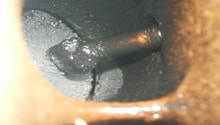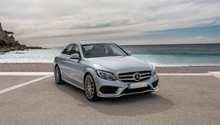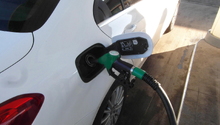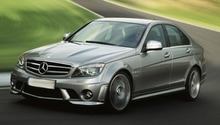Mercedes Benz C-Class: Fuel Economy and Type of Gas to Use
You probably know that for you Mercedes-Benz C-Class, only premium fuel should be used. But do you know why? This article won't get into the boring, in depth chemistry behind it, but will tell you why premium fuel is important for your w205.
This article applies to the Mercedes-Benz C300/C400, and AMG w205 (2014-Present).
For some cars, pumping inexpensive regular or mid-grade gasoline is perfectly fine—beneficial even. However, for the Mercedes-Benz C-Class, the type of gasoline used makes a huge difference. A lot goes into the mechanics of it, but the general and seemingly biased reason why the w205 requires more expensive fuel is because it delivers high-performance, speed, acceleration, and cutting-edge handling as well as stability. It only makes sense that what you're putting into this road warrior is of the highest quality as well. This article will provide you with the type of fuel to use, and what fuel economy you should expect to get.
Regular/Mid-Grade Versus Premium Fuel
When you stop at the pump to refuel your car, there are three options to choose from: regular (87), mid-grade (89), and premium (91/92). These grades represent the ratio of octane gas to other gases in the fuel mixture. For example, premium "91" gasoline contains roughly 91% octane and roughly 9% heptane. Contrary to popular belief, a higher octane number does not always correlate to better fuel efficiency or engine longevity. In fact, the octane number is relative to individual cars.
Simply put, it's all in the compression ratio of your engine. The larger the compression, the more power produced and vice versa. Fuels with a lower octane number (87-regular) require a smaller compression ratio because with a lower percentage of octane in the air/fuel mixture, the quicker and easier it is for combustion to occur. Thus, since smaller engines have lower compression ratios, they perform best with lower octane fuels. Engines with higher compression ratios perform best with higher octane fuels (91-premium) because the air/fuel mixture does not ignite before full compression of the pistons, which would cause engine "knocking." So, what type of car you have and the compression ratio of your engine determines what type of gas you should get.
Fuel Economy and What Type of Gas to Use
As far as what brand of gas to pump, each manufacturer mixes additives into their fuel that clean the engine and help it run more efficiently—in addition to providing accurate octane percentages. For Mercedes-Benz, the approved brand of fuel is Chevron. W205 engines, in particular, have been manufactured to use premium unleaded (91 octane or higher) gasoline, preferably by Chevron. If you wish to protect your engine further, Mercedes-Benz has suggested the use of an MB-manufactured fuel additive or a Chevron fuel system cleaner: Techron Concentrative Plus.
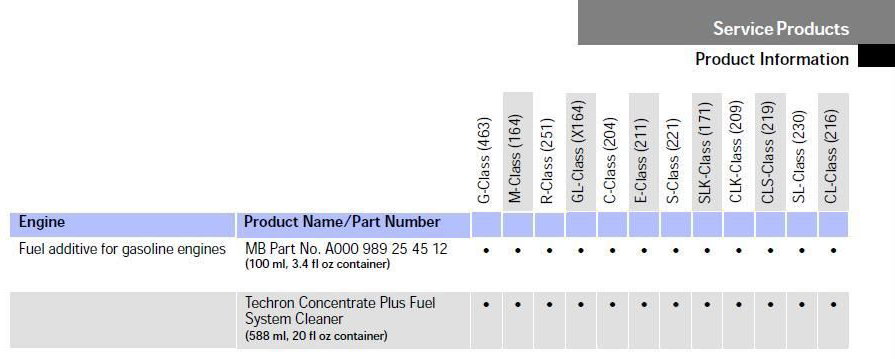
With the proper type of gas used, the Mercedes-Benz C-Class can achieve 22 MPG in the city and 31 MPG on the highway, which is competitive for a luxury sports vehicle of its class. Simple maintenance can also help to maximize your vehicle's fuel economy, which include correct tire pressures, regular oil and air filter changes. Replacing the spark plugs also plays a role in enhanced fuel economy, so be sure to have your w205 serviced regularly for basic maintenance. The spark plugs should be inspected and replaced after every 20,000 to 30,000 miles.
Common Questions
Could Fueling My C-Class With Other Fuel Grades Hurt My Engine?
Over time, yes. Pumping lower grade fuels (87-regular or 89-mid-grade) into your vehicle can cause your engine to knock, which might also cause engine problems in the future.
Is It OK to Mix fuels? Does it Minimize Costs?
Mixing fuels is not known to significantly harm engines or minimize costs. However, with your Mercedes-Benz C-Class, it's best to pump the recommended fuel grade according to the manufacturer.
Common Issues
Why Do I Hear a Knock Coming From My Engine?
If you hear engine knock, it's likely that regular or mid-grade gas might be the cause. Pump premium grade gas, and observe if the noise goes away. If not, the knocking sound may be caused by a fault somewhere within the ignition system. Take your C-Class to a Mercedes-Benz service center as soon as possible for diagnosis and repair.
Related Discussions, and Site
- W205 Real World MPG - MBWorld.org
- Gas for C-Class - MBWorld.org
- C-Class Owner's Manual - MBUSA.com



